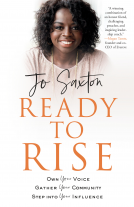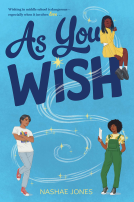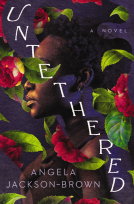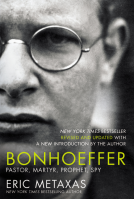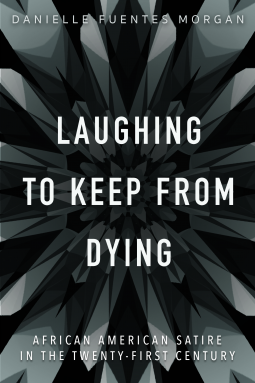
Laughing to Keep from Dying
African American Satire in the Twenty-First Century
by Danielle Fuentes Morgan
This title was previously available on NetGalley and is now archived.
Send NetGalley books directly to your Kindle or Kindle app
1
To read on a Kindle or Kindle app, please add kindle@netgalley.com as an approved email address to receive files in your Amazon account. Click here for step-by-step instructions.
2
Also find your Kindle email address within your Amazon account, and enter it here.
Pub Date Oct 22 2020 | Archive Date Jan 05 2021
Talking about this book? Use #LaughingtoKeepfromDying #NetGalley. More hashtag tips!
Description
How African Americans have infused satire with a potent new dimension
By subverting comedy's rules and expectations, African American satire promotes social justice by connecting laughter with ethical beliefs in a revolutionary way. Danielle Fuentes Morgan ventures from Suzan-Lori Parks to Leslie Jones and Dave Chappelle to Get Out and Atlanta to examine the satirical treatment of race and racialization across today's African American culture. Morgan analyzes how African American artists highlight the ways that society racializes people and bolsters the powerful myth that we live in a "post-racial" nation. The latter in particular inspires artists to take aim at the idea racism no longer exists or the laughable notion of Americans "not seeing" racism or race. Their critique changes our understanding of the boundaries between staged performance and lived experience and create ways to better articulate Black selfhood.
Adventurous and perceptive, Laughing to Keep from Dying reveals how African American satirists unmask the illusions and anxieties surrounding race in the twenty-first century.
Danielle Fuentes Morgan is an assistant professor in the Department of English at Santa Clara University.
Advance Praise
"Danielle Fuentes Morgan's Laughing to Keep from Dying is a major contribution to African American literary and cultural studies and to the study of satire and other forms of humor in the United States. Taking as her focus satirical texts in the twenty-first century, Morgan argues that recent African American satirical works reassert an ethical position present in black cultural expressions since slavery, that literature and art instantiate a humanity that its authors perennially assume to be a matter of fact. But rather than positing respectability politics, contemporary African American satire advocates a 'kaleidoscopic blackness,' one that embraces the many subtle and subversive ways that black people make meaning. Contemporary African American satire, as the title indicates, is more than a salve for oppression; its purpose is to keep black people from dying. In this stunning debut, Morgan places herself in the company of Glenda Carpio, Terrence Tucker, and most recently Lisa Guerrero."--Darryl Dickson-Carr, author of Spoofing the Modern: Satire in the Harlem Renaissance
"Danielle Fuentes Morgan attunes readers to the variable registers and resonances of Black laughter in the present moment. Examining a wide range of media, from novels and television series to standup comedy and performance art, Morgan shows how the satirical impulse in Black cultural production expresses not only collective histories of subversion but individual practices of survival. A bold account of humor’s capacity to traverse the realms of sociality and interiority, Laughing to Keep from Dying is a model of Black study for the twenty-first century." --Kinohi Nishikawa, author of Street Players: Black Pulp Fiction and the Making of a Literary Underground
Available Editions
| EDITION | Other Format |
| ISBN | 9780252085307 |
| PRICE | $24.95 (USD) |
| PAGES | 208 |
Links
Featured Reviews
This book is incredibly important, especially with everything that's been happening in America lately and with the upcoming election. I am incredibly honoured to have been given the opportunity to read this book and I would and will recommend it to everyone I know because everyone should read this book.
The title is well chosen because you will across parts in this book that will give you no other choice because otherwise, you don't know what else to do. You won't be able to put that book down because there is a whole lot of history put into that book, obviously, but the way it's done is impressive. It's respectful and sincere, but it's also a book that you read, put down and then you pick it up to read it again. It's a book you have to read multiple times because I don't think it's possible to grasp all of that book's essence in just one read.
However, I would advise some editing on this book, since the spacing is horribly off, up to a point where it makes reading difficult and for a book like this, such an important book in our time, it would be horrible if it was to be published like that.
An excellent academic exposition of racial satire in popular culture, Laughing to Keep from Dying delivers a sharp interrogation of movies from Django Unchained to Get Out, comedy from Chris Rock to Dave Chappelle, and works as far back and as solemn as slave narratives. Danielle Fuentes Morgan delivers exceptional insight into all of these works and the way they are situated within American culture. If you consume any race-based entertainment products at all (and frankly, how can you not in American society today?), this book is an important read.
Dr. Morgan steps us through four historical characteristics of satire in a racial context, with each receiving the full attention of their own chapter (although they all weave together): humor as a survival technique (e.g., in slave narratives), the use of stereotypes in comedy (e.g., on the minstrel stage), the manipulation of racial expectations (e.g., in racial passing), and the vulnerability of negotiating the satiric line.
In the first chapter, Dr. Morgan shows how slave narratives demonstrate the preposterous mental gymnastics that are required to justify the system of slavery. She highlights the use of silence to force the audience "to consider what justice might look like in spaces where injustice cannot even be articulated" and to remind the audience "that some things remain unspeakable." She takes issue with Tarantino's depiction of slavery in <i>Django Unchained</i> arguing that slavery was already horrendous and violent, and does not require artificial amplification to prove that point.
In chapter two, Dr. Morgan highlights race as a performance and discusses the expectations of performing Blackness and understanding whiteness. In discussing passing narratives, she highlights the role of the family in conspiring to conceal the individual's race, or individuals needing to sever ties with their family in order to successfully pass. She critically examines President Obama's decision to wear dad jeans during his presidency as potentially an effort to visually tone down his masculinity, compared to the sharp-dressed image he has embodied since leaving office.
In chapter three, Dr. Morgan returns to her argument that whiteness is hard to define, and whatever stereotypes about white people that do exist in society and popular culture serve to elevate white people as a racial group and never to denigrate them or show their inhumanity; in her words, "There is no real sense of equity in comparing the racialization of whiteness to that of marginalized people." She discusses blackface as necessarily intentional satire or direct racist trope, and she also touches on the impact of perceiving that performance out of context. For example, she shares an anecdote of Dave Chapelle being laughed at backstage by a white stagehand while dressed as a minstrel and preparing to deliver an act.
In chapter four, Dr. Morgan brings her argument fully current and discusses how racism continues to appear as a seemingly permanent fixture in American society. As society continues to press toward what she argues are increasingly absurd and self-satirizing justifications for racism, satire becomes simultaneously more necessary and more complicated. She elucidates her point through examining zombie apocalypse narratives where even zombies exhibit racism and near-future sci fi stories where white people agree to give away all African Americans to aliens (for reasons completely unknown to them, but they leave in shackles from a slave port) in exchange for additional resources and comforts. She also highlights a key underlying message of Get Out that an outward performance of white progressive politics and allyship does not in any way preclude someone from harboring deep and violent racism.
There is so much more that I could say about this superb volume, but I'd really encourage you to just read it yourself. It is truly essential reading, and Dr. Morgan clearly explains to us why:
"Even prior to Trump's actual win, the rhetoric surrounding the first female president, herself a former first lady, running against a wealthy reality television star, by its very nature blurred the line between the real and the imaginary--a satire writ large and played out with stunning implications regardless of the victor. It is because of this seeming indecipherability between reality and the satirical that a nuanced and carefully articulated satire, finely trained on its target is more necessary than ever."
Much, much thanks to University of Illinois Press and NetGalley for the eARC.
 Shannan H, Reviewer
Shannan H, Reviewer
This happened to be such a well written and thought provoking book. Using comedians from the past, and starting at slavery, the author gives an account on how some African Americans have used humor to tell some heart wrenching and troubling truths. This was one of those books where you have to read it a little slowly and digest some of what is being said. Great job with the content.
 Marissa L, Reviewer
Marissa L, Reviewer
Review copy provided by the publisher.
This is an academic work, with all the analysis that implies; it is not itself a work of humor. That analysis, however, is well worth the price of admission for anyone who cares about satire, about 21st century African-American culture, and I think in fact for American culture in general. Morgan is magisterially far-reaching when it comes to satirical lenses of the 21st century. She has no apparent genre bias but sees the potential for satire in any and all genres.
She also sees its potentials for failure. The section on failed attempts at satire and why they missed their mark is fascinating, and by itself it would have been enough to make the whole book worthwhile. While this is academic analysis, she is entirely ready to include "this wasn't particularly funny, no one was laughing, and for good reason" in failure modes of satire. She's not doing a comedy turn herself, but she never loses sight of what she's actually analyzing--and I felt inspired at several places to look for the more successful attempts she describes, to experience or re-experience them.
Morgan gives the reader a solid grounding in pre-21st century works in this genre, quickly and concisely but in a way that made me miss Richard Pryor, which seems like exactly what ought to happen with a work like this. I enjoyed this book a lot, and it also made me enjoy some things more deeply--not required of criticism, but excellent when it can happen.
 Melissa M, Reviewer
Melissa M, Reviewer
I have to admit, I thought this was a satire featuring black people. Turns out, it is basically a primer on the history of black comedians who used satire and humor to express their lived experiences. This is even better, in my opinion, than what I thought it was going to be about. Talk about a lovely surprise! The author Danielle Fuentes Morgan starts all the way back during slavery times and slowly brings us all the way to the present, giving the reader what may be the most interesting history lesson of their life. The concept of this book is unlike any other I have seen and I loved reading about these stories and seeing a side of the black community and its history that I had not seen before.
 Reviewer 699706
Reviewer 699706
Laughing to Keep From Dying looks at African American satire from present comedians and social commentators back through Black history. It's an engaging work that draws on a wide spectrum of analysis to look at how satire is a tool that has been used effectively to confront racism. It is written in an academic tone and treats satire as a serious way of addressing the complexities of being Black in the USA. I found the section on satire's history going back to slavery and the American civil war especially fascinating. The title very aptly describes the role that satire can have in oppressed communities. The author doesn't shy away from controversies that have come up with satirists like Dave Chappelle and the complexity of the landscape he navigates. Highly recommended for anyone with an interest in satire or African American cultural representation.
Readers who liked this book also liked:
Mary Annaïse Heglar
General Fiction (Adult), Multicultural Interest, Women's Fiction


